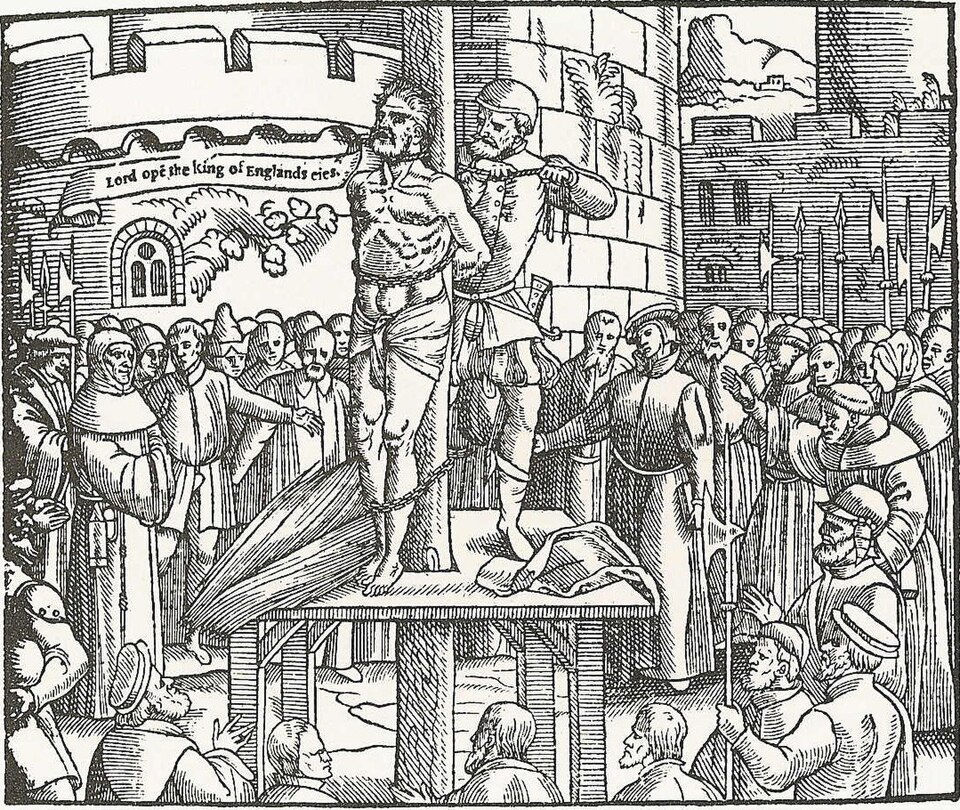Reformation Day: When the Word Came Alive Through Martin Luther
- Oct 31, 2025
- 4 min read

Detail from front page of Martin Luther's german bible, 1534
When I was a boy, I thought Lutherans were just Roman Catholics-lite.
I had one Lutheran friend and his church with the candles, stained glass, and robed ministers looked very Roman to me.
Little did I know that this church was the enemy of Rome the fountain of life for those who lived by the Bible.
In that Book, we find Jesus, not in the vain repetitions and pagan rites of Catholicism.
I honor Luther today and every day I read that Holy Book praying the prayer he gave us as I read: Teach me, teach me.
**************************************
On the morning of October 31, 1517, a monk named Martin Luther walked to the door of the Castle Church in Wittenberg with a hammer in his hand and a conscience on fire. He did not go there to make a spectacle; he went because the Word of God had found him and would not let him be silent.
He nailed up his Ninety-Five Theses not simply as protest but as a summons — a summons to the Church, to the pastors, and to every Christian to come back to the Book. Out of love for the truth and the desire to bring it to light, he raised his voice.
The Word came alive via Martin Luther.
Luther’s core discovery was simple and explosive: “The just shall live by faith.” (Romans 1:17, KJV). This single phrase ripped the mask off religious pride and human merit. It pointed believers away from bargaining for God’s favor and back to the blessed, scandalous truth that salvation is a gift — received by faith alone, rooted in grace alone, anchored in Christ alone.
When Scripture again became the final court of appeal (sola scriptura), the common man could open his Bible and hear God speak in his own tongue.
The Reformation was no gentle debate. It was a spiritual earthquake. When summoned before the emperor and princes at the Diet of Worms, Luther answered as a man whose feet were planted on holy ground: “Here I stand. I can do no other. God help me. Amen.”
That stand was not theatre — it was conscience under Christ. It was a holy refusal to bow to lies dressed up as piety. Luther was willing to endure isolation, slander, and worse because the Word had become more precious to him than life itself.
Why does this still matter? Because our age needs the same fierce fidelity. We live in a time when comfortable lies are repackaged as wisdom and when young hearts are taught to trust feeling, ideology, or the applause of the crowd more than the clear voice of Scripture.
The same Spirit who stirred Wittenberg can and does move in our day: to convict, to illuminate, to set souls free. Modern testimonies of bold conversion and public witness — men and women who refuse to let cultural pressure silence the Gospel — are echoes of that 16th-century thunder.
Truth still liberates. Courage still matters.
We must reclaim two things Luther taught us by his life: repentance and audacity. Repentance — because everywhere the Church softens the edges of the Gospel, we need to return to humble dependence on Christ.
Audacity — because the Gospel is not a private comfort; it is public truth that confronts falsehood wherever it hides. The printing press once carried Luther’s words across a continent; today, the internet spreads conviction and confusion alike. Let us use every tool to spread the Word that saves.
Practical holiness follows from this conviction.
Read your Bible with expectation. Pray with courage. Speak the truth in love when falsehood would lead the flock astray. Be ready to stand alone if need be — for many faithful men and women will stand with you in spirit.
Remember: reformations begin when ordinary believers refuse to be lulled by polite compromise and instead take the Bible seriously.
A lamp and a guide:
“Thy word is a lamp unto my feet, and a light unto my path.” (Psalm 119:105, KJV). When that lamp is lit in the heart, things change — families, congregations, communities.
Reformation is not merely historical memory; it is a present calling. The hammer on the Wittenberg door was not merely an instrument of protest; it was the sound of a heart that could not be quiet until God’s truth had its way.
So stand. Speak. Pray.
Teach your children to love the Scriptures. When our culture pounds hard against Christian conviction, respond not with timidity but with patient boldness and gospel clarity. Throw the metaphorical ink bottle at the devil if you must — that is, do not be afraid to counter lies with the clear, robust truth of the Gospel. Let your life testify that the Word still brings light, rebukes error, and reforms the soul.
Closing Prayer
Lord God, who raised up faithful witnesses in every age, stir us now with that same holy zeal. Grant us repentance where we have grown dull, courage where we fear compromise, and speech where we have been silent. Let Your Word live in us and through us, that our homes, churches, and nation might know true renewal. In Jesus’ name. Amen.
Reflection QuestionWhat would it look like for you to take a small “Here I stand” moment this week — a courageous, Bible-rooted step that shows you trust God more than approval or comfort?



Comments